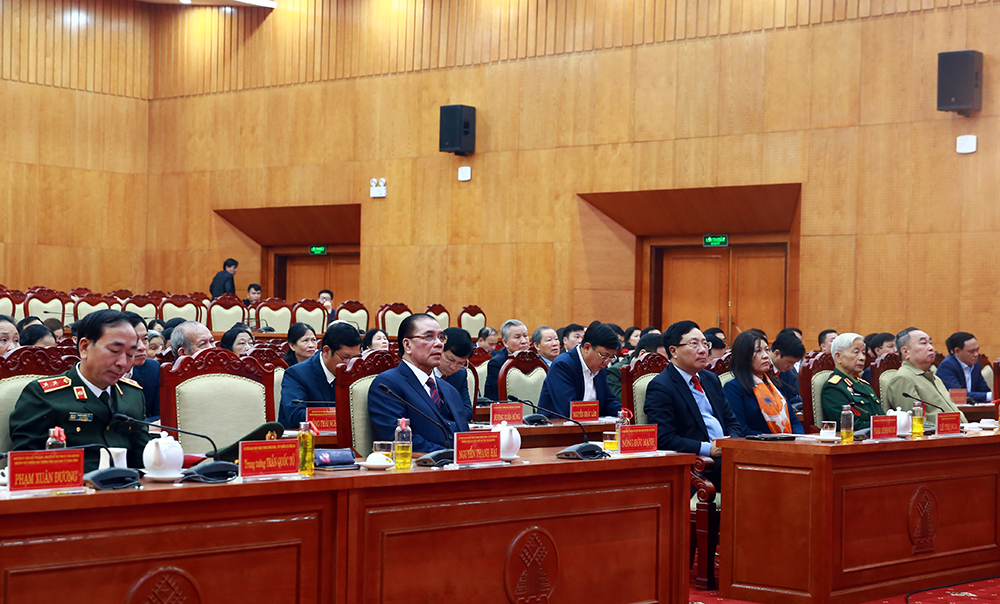Ceremony held to mark 75th anniversary of first General Election Day
VGP – The Delegation of National Assembly deputies of Thai Nguyen Province organized a ceremony on Saturday to mark the 75th anniversary of Viet Nam’s first General Election Day (January 6, 1946).
 |
|
Participants to the ceremony marking the 75th anniversary of Viet Nam’s first General Election Day. Photo: VGP |
In his commemorative speech, Secretary of Thai Nguyen Provincial Party Committee Nguyen Thanh Hai recalled that just one day after the revolutionary State was born, President Ho Chi Minh called for organizing general election with universal suffrage as soon as possible while addressing the first meeting of the Provisional Government.
In combat zones in South Viet Nam, southern Central Viet Nam and the Central Highlands, elections took place in a fierce circumstance even with bloodshed for the exercise of democratic rights of every Vietnamese citizen.
In response to the call, the first general election of the National Assembly took place on January 6, 1946, electing 333 deputies representing the whole country.
Eighty-seven percent of the elected deputies were workers, farmers and revolutionaries, said Hai, adding that they included 10 female deputies and 34 ethnic minority deputies.
The successful organization of the election under the sound leadership of the Party and President Ho Chi Minh was a milestone in the development of Viet Nam’s revolutionary State, opening a new period of Viet Nam’s history with a National Assembly, a unified government, a progressive constitution, and a legal administration.
The National Assembly embodied national unity and represented the will, power, and aspirations of the people.
Following the success of the general election, the National Assembly, at its first session on March 2, 1946, elected a National Assembly Standing Committee headed by scholar Nguyen Van To and set up a coalition resistance government headed by Ho Chi Minh as President.
The Democratic Republic of Viet Nam State was officially organized with the National Assembly as the highest state power agency and the Government as the highest administrative body elected by the National Assembly.
A draft Constitution was prepared by the Constitution-drafting committee. Though brief and concise, it spelt out the national and democratic nature of the Democratic Republic of Viet Nam.
On November 10, 1946, the draft Constitution was publicized on Cuu Quoc (National Salvation) paper for public opinion. The drafting committee was responsible for gathering and summarizing proposals for submission to the National Assembly.
Meanwhile, the National Construction Plan Study Committee, which was attached to the Government and composed of 50 members who were intellectuals, patriotic personalities, ministers and deputy-ministers, also studied and put forth another draft constitution submitted to the Government.
Based mainly on the Government’s draft constitution, which was compared with the draft constitution of the National Construction Plan Study Committee, and consulting constitutions of a number of European countries, the National Assembly’s Constitution Sub-Committee made a new draft constitution and presented it to the National Assembly at its second session lasting from October 28 to November 9, 1946 in Ha Noi.
The National Assembly deputies pointed to its pluses and added a number of specific points before it was unanimously approved.
On November 9, 1946, the National Assembly voted to pass the Constitution of the Democratic Republic of Viet Nam with 240 votes for among 242 present deputies.
By Thuy Dung
